Description
Name in North American Boletes: Boletus satanas
Genus: Rubroboletus
- Genus 2: Boletus
Species: eastwoodiae
- Species 2: satanas
- Species 3: eastwoodii
Common Name: “Satan’s Bolete”
- Common Name 2: “Miss Alice Eastwood’s Bolete”
Tells: Very large, bulbous, white-buff stem w/pinkish tints & reticulation. Everything blues. Cap has pinkish tones & often cracks in age.
Other Information: Yellowish flesh stains (often an odd aquamarine shade), sometimes slowly or erratically w/old specimens. Red pores fade to red-orange w/age & bruise blue. Can grow to be really huge (10″ across). Likes oaks.
Science Notes: DNA testing moved this mushroom into the newly erected genus “Rubroboletus.” The species name was changed to reserve “satanas” for the European lookalike – which is kind of a shame since it was so evocative of the mushroom’s power to cause illness. NOTE: This is the “Bad News Boletes” genus that includes many of the worst sick-makers. Red flags should go off when you see it. The other West Coast members are:
- Pulcherrimus, typically found in coastal CA and the worst sick-maker of all;
- Haematinus, the mountain red pored bolete;
- Amygdalinus, the oak loving red pored bolete.
Edibility: Avoid. Causes severe GI distress in many people.
CHEMICAL TESTS:
- NH4OH (Ammonia): No data.
- KOH: No data.
- FeSO4 (Iron Salts): No data.
Links:
 |
0 |  |
0 |  |
156 |

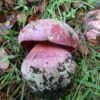
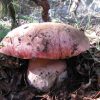
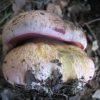
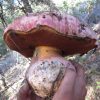
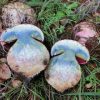
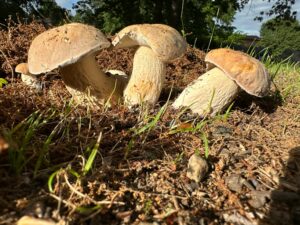
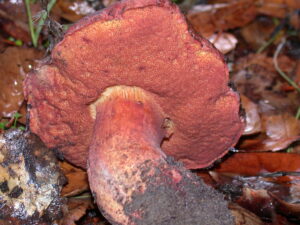
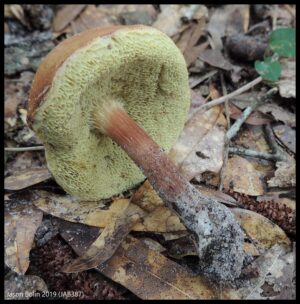
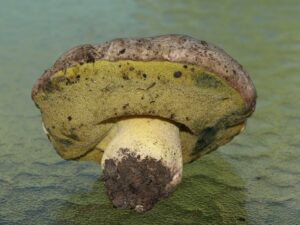
Got something to discuss?